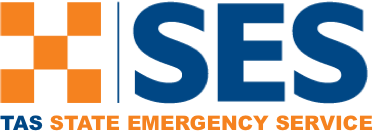When : Wednesday 25 September 10.30am-3.00pm
Where : Launceston Tramsheds, 4 Invermay Road, Inveresk, Launceston
Cost : Nil
To register, please email pcep@ses.tas.gov.au with your name, your organisation and location, plus if you have any specific requirements (eg dietary, mobility etc)
We will confirm your registration.
Workshop overview
Imagine there is
- a major storm/ flood event hitting Tasmania, or
- the threat of a bushfire impacting the city during a heatwave.
You have an emergency plan, but are you sure your organisation can keep supporting your clients? For example:
- Could you continue to operate during an emergency? Are you in an area prone to flooding or exposed to bushfire? What contingencies are in place?
- Can your staff reach your clients to provide their normal needed support?
- Can you ensure your clients continue to be safe during the emergency?
- What happens when some staff cannot make it to work as they are impacted by the emergency?
- What measures do you take to assist your clients are as prepared as they can be for emergencies?
The State Emergency Service and Tasmania Fire Service have two scenarios for you to test and refine your emergency plans.
Associate Professor Michelle Villeneuve, Deputy Director at the University of Sydney impact Centre for Disability Research and Policy and who leads the Collaborating4Inclusion research program on inclusive disaster risk reduction will lead a discussion on the role, capacity, tools, and training needs of service providers who have important roles in the delivery of effective emergency management planning and practices that leave nobody behind. This is a great opportunity to find out more about the larger program of research that has focused on developing methods, tools, and practical guidance on how to operationalise Australia’s shared responsibility framework through meaningful inclusion and collaboration. This includes, both the opportunities and challenges experienced by service providers.
This workshop is part of the People with Disability Emergency Preparedness Project.

